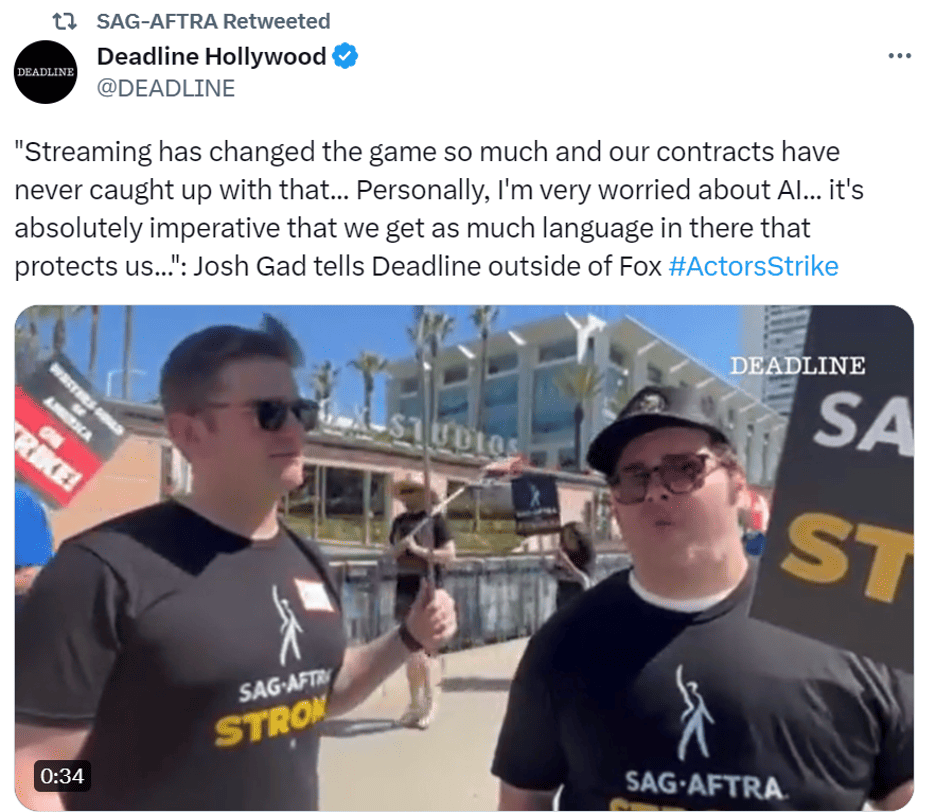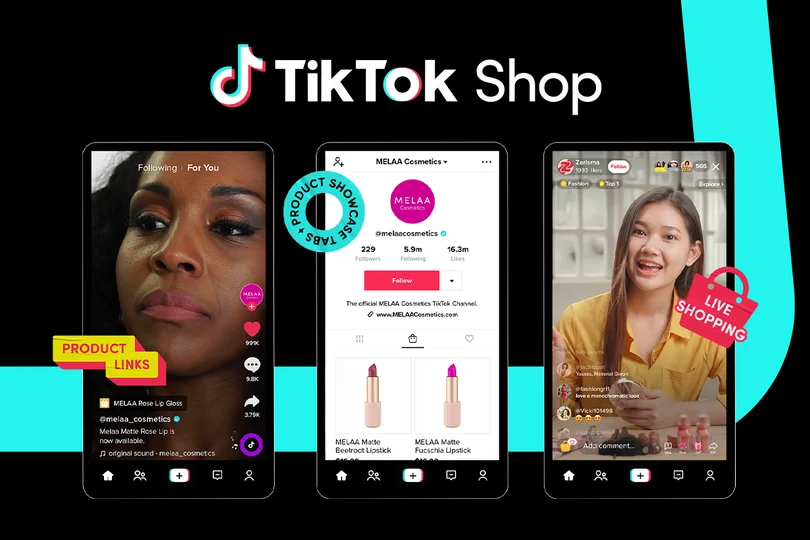 Source: Washington Post
Source: Washington Post
The Hollywood strikes have been making headlines for weeks, first with the Writers Guild of America strike that started on May 1 and the Screen Actors Guilds strike that followed on July 13.[1]
But there’s another revolt happening in the creative space with independent writers, actors, and news organizations rebelling against the rising use of artificial intelligence (AI).[2]
More importantly, it’s not so much the use of AI as its use to steal data and copyrighted materials without permission, stealing both existing work and jobs in one fell swoop.
The protests have taken different forms. Writers and artists are locking files to protect work or avoiding websites that publish AI-generated content. Reddit wants to charge for access to data. There are over 10 lawsuits filed against AI companies for training systems on creative work without consent.
All of this proves that the content created online, which is often taken for granted for its ease and ephemerality, has untapped value.
Generative AI and Its Impact
AI has been around for a long time. What’s different now is that the new wave of AI – generative AI – is built and trained on large language models that can produce humanlike creative results. The training includes all kinds of data from human creators to answer questions, tell jokes, and emulate writing styles.
As they gather more data and create more assets, they learn. The tech companies that created them are in constant search for more data to continuously feed AI systems and make them better – particularly in the race against one another with Google, OpenAI, and Meta.
These companies are pulling information from all over the internet, including databases of news articles, books, fan fiction, and other free resources. They’re data scraping, which is a common practice that many organizations use to gather information.
In the past, data scraping was generally seen as innocent by the very companies whose data was being scraped. It was also disclosed by the companies scraping. Then, ChatGPT debuted in the fall and people started to pay attention to the way AI models amass data – and that data has more value.
Statements from the Source
The data revolts began shortly after ChatGPT exploded in popularity practically overnight. After it launched, a group of programmers filed a class action lawsuit against OpenAI and Microsoft claiming that the companies had violated their copyright and used their code to train the AI-powered assistant.[3]
In January, Getty Images, a company that provides stock images and video content, sued Stability A.I., claiming that the startup had used copyrighted photos for system training.[4]
It only got worse. In June, a law firm in Los Angeles filed a 151-page proposed class action lawsuit against OpenAI and Microsoft for gathering data from minors and violated copyright law with web scraping tactics.
As the lawsuits rise, OpenAI came out to say that the technology was trained on “licensed content, publicly available content, and content created by human AI trainers.”[5] It also claimed to “respect the rights of creators and authors.”
Google also made a statement to discuss options for publishers to manage their own content in the future. Microsoft declined to comment on the situation.
Do the Protests Matter?
Ultimately, no. Tech giants like Microsoft and Google are already privy to high volumes of proprietary information – and they have the resources to license more as they need. They’re almost above criticism or repercussions.
The little guys – the AI startups and nonprofits that wanted to use the same information – won’t fare as well. They have to compete with Big Tech to obtain the content to train their systems, and they can’t do that if it’s under lock and key.
What Do AI Data Revolts and Hollywood Strikes Have in Common?
At a glance, the AI data revolt and Hollywood strikes with the Writers Guild of America and Screen Actors Guild may seem unrelated. The former is in protection of content that’s been created and published online – of which there is a stunning volume – and the other is about higher pay.
There are two common threads, however: AI protection and the unchecked power of Big Tech.
 Source: Twitter
Source: Twitter
Together, these two newsworthy situations (one admittedly more so) is the whole of society pushing back against the sweeping power and influence of Big Tech. Giants like Meta, Microsoft, and Google have risen to heights with no regulation or competition, creating vertical monopolies that push out the little guys.
For example, Apple makes computers and cellphones, provides Apple TV to subscribers, and produces the content on it. Comcast is one of the largest multinational telecommunications firms and has distribution rights to a wealth of content.
These companies have bargaining power that creates challenges for writers, actors, and even online content creators. There’s also incentive. These giants can eliminate costs by eliminating human workers and producing content at a fraction of the time and costs. Then, if it fails, the investment is much smaller.
As AI improves by leaps and bounds – fed on the often-copyrighted creative work of the masses – the incentive only grows.
What’s Next?
The strikes, protests, and lawsuits haven’t done much to slow the growth of Big Tech and AI, but this is just the beginning. Companies are getting involved in the fight, joining the ranks of news publications and creators to protect intellectual property. After all, why should anyone give all that value to tech monopolies for free?
Sources:
[2] https://www.nytimes.com/2023/07/10/arts/sarah-silverman-lawsuit-openai-meta.html
[3] https://githubcopilotlitigation.com/
[4] https://www.nytimes.com/2022/10/21/technology/generative-ai.html
[5] https://www.nytimes.com/2023/07/15/technology/artificial-intelligence-models-chat-data.html



